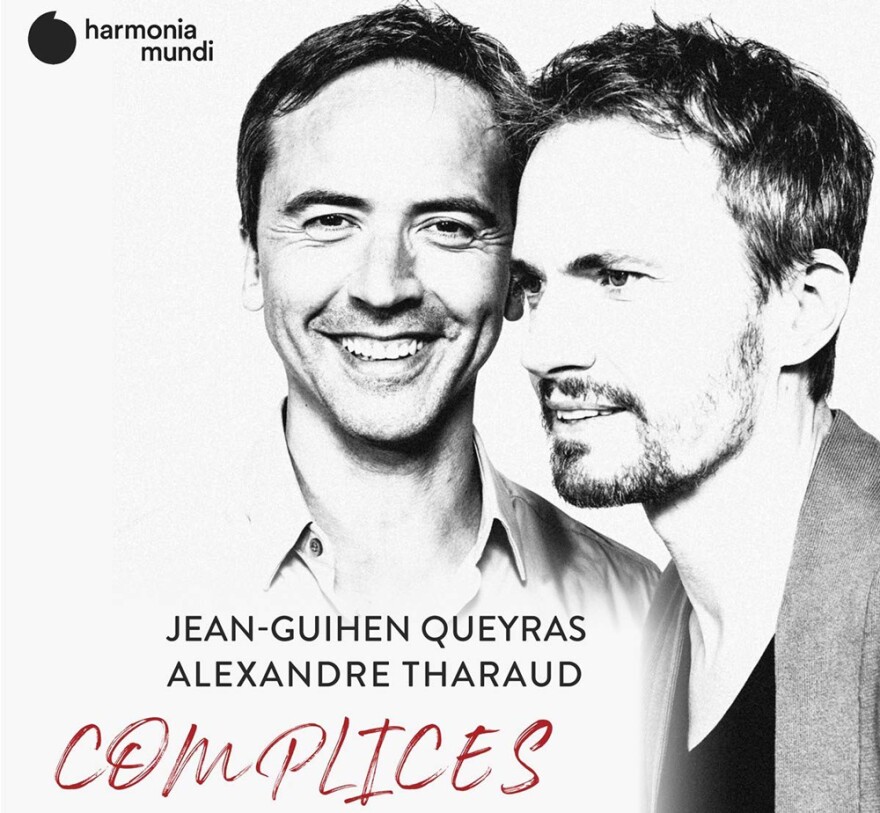June 1, 2020. Complices is the title of our Classical Album of the Week, and for the non-Francophiles among us, that translates to "accomplices" or "partners." So, you may be wondering—who are these accomplices? Everybody I asked about this assumed what I did—that it must refer to the two featured artists themselves, cellist Jean Guihen Queyras and his collaborator, pianist Alexandre Tharaud.
Another possibility seemed to be that all of the 19 encore pieces on this album were, in some way, little musical companions for Queryras. As if they were a collection of dear old friends or trusty go-tos to pull out when a fun musical bon-bon will do and nothing else has been rehearsed.
Well, we’d all have been wrong.
The title, Complices, actually refers to the special relationship between the artist and the audience. (Didn’t see that coming, did you?) That connection is what captured Queyras’ imagination and guided his selection of these encores.
So, let’s dive in and see what Queyras delivers. For those who go out to concerts regularly (remember those?), you’ll probably agree with me when I say that movements of Haydn are not what immediately jump to mind when we think of encores. After all, Haydn’s music isn’t the most virtuosic or expressive to be found out there.
But, here, Queyras chooses exactly that and bookends the album with two Haydn selections—to start, the Allegro mi molto from the Baryton Trio Hob. XI: 113
-k
And, to close, a middle movement of Symphony No. 13. The first one bounds right out of the gate, sparkling with a light, almost breathless, jollity that guarantees you’ll stick around for the second—a slow movement that brings a satisfying, if not showy end to the album.
In between these bits of Haydn, there is a little something for everyone, with some Spanish (de Falla) and French fare in the mix (Faure, Poulenc, and Dutilleux). But what makes this not just any encore album, but specifically a cellist’s encore album is the presence of composer David Popper’s music.
Popper may not be a familiar name to many, but cellists know him oh so well. About 150 years ago he composed 40 études, a landmark set of technical studies, entitled Hochschule des Violoncellspiels (High School of Cello Playing)—infamous for the challenges they hold for even the most accomplished players. (Suffice it to say, more than a few tears of frustration have been shed over these in practice rooms around the world.)
Popper did make a name for himself beyond those student exercises. He also composed some concertos and recital pieces, too—three of which can be heard in this album. Queyras shines particularly in the Mazurka and Dances of the Elves, giving performances full of the athletic glory Popper dares to demand in almost everything he composed.
More works from the album:
Fritz Kreisler: Liebesleid
Franz von Vecsey: Valse Triste

